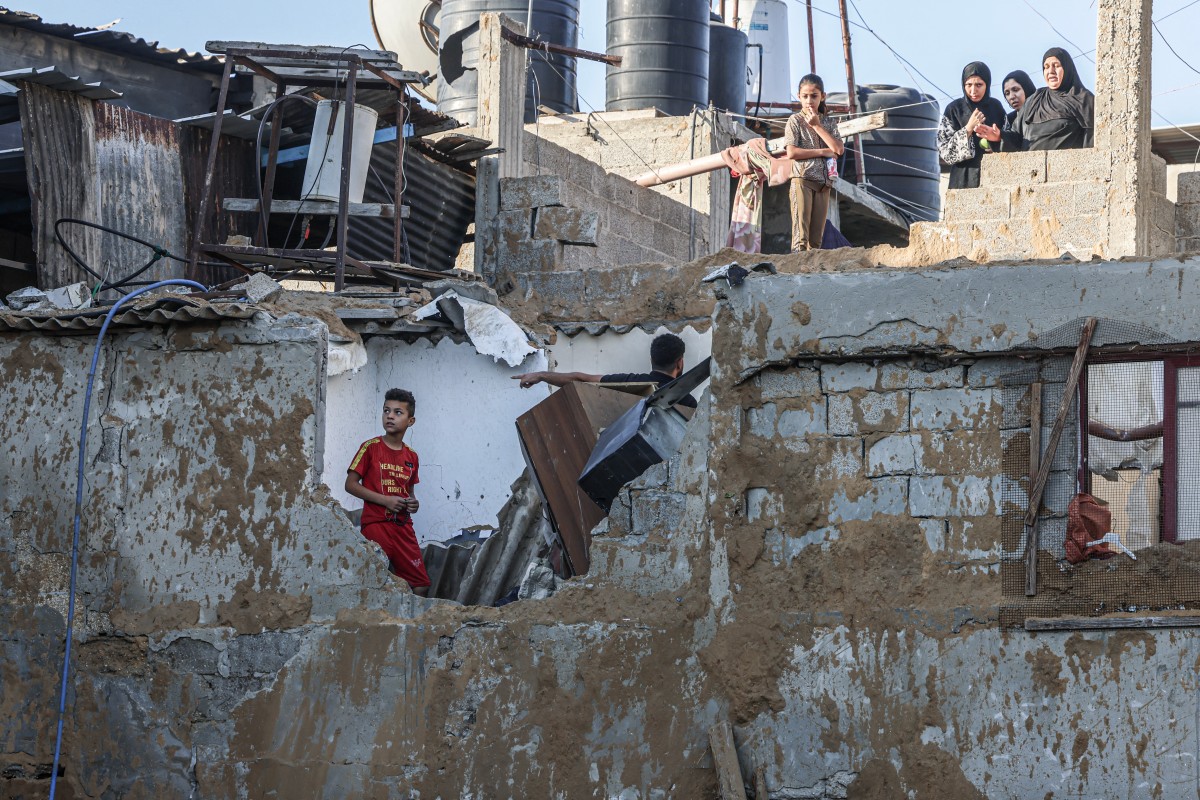
403
Sorry!!
Error! We're sorry, but the page you were looking for doesn't exist.
Chief Coordinator for Humanitarian Affairs reports humanitarian situation in Gaza has reached critical, unprecedented level of suffering
(MENAFN) Sigrid Kaag, the Chief Coordinator for Humanitarian Affairs and Reconstruction in the Gaza Strip, has reported that the humanitarian situation in Gaza has reached a critical and unprecedented level of suffering, marked by extensive damage, trauma, and despair. Kaag, who has frequently visited the region, has expressed her growing difficulty in comprehending the scale of the destruction and the severe impact it has on the population.
Kaag pointed out a significant public health crisis emerging in Gaza, where the spread of infectious diseases is becoming a major concern due to poor hygiene conditions, worsened by the extreme summer heat. She noted that humanitarian workers on the ground are facing similar issues, severely hampering their ability to deliver effective aid and relief.
In response to questions about the recent destruction of a key water tank in Rafah by Israeli forces, Kaag emphasized that "the requirements of international humanitarian law are very clear" in such circumstances. She underscored the crucial need for adherence to international legal standards to facilitate the safe delivery of essential resources such as clean water and hygiene supplies.
On Monday, the Israeli military confirmed that its troops had blown up a water tank in the Tel Al-Sultan area of Rafah. This incident has exacerbated an already severe water crisis in Gaza, where access to clean drinking water is extremely limited. The destruction of the water tank is part of a broader pattern of reported deliberate attacks on Gaza's water infrastructure, including networks, wells, and desalination plants, by Israeli forces. These actions have significantly worsened the existing water scarcity crisis.
Reports from various institutions and municipal authorities in Gaza have highlighted that these targeted attacks are contributing to the severe water shortage. Additionally, ongoing restrictions on fuel imports have further impeded the operation of the remaining desalination facilities. The combination of these factors has created a dire situation, intensifying the humanitarian emergency and leaving Gaza with an acute shortage of potable water.
Kaag pointed out a significant public health crisis emerging in Gaza, where the spread of infectious diseases is becoming a major concern due to poor hygiene conditions, worsened by the extreme summer heat. She noted that humanitarian workers on the ground are facing similar issues, severely hampering their ability to deliver effective aid and relief.
In response to questions about the recent destruction of a key water tank in Rafah by Israeli forces, Kaag emphasized that "the requirements of international humanitarian law are very clear" in such circumstances. She underscored the crucial need for adherence to international legal standards to facilitate the safe delivery of essential resources such as clean water and hygiene supplies.
On Monday, the Israeli military confirmed that its troops had blown up a water tank in the Tel Al-Sultan area of Rafah. This incident has exacerbated an already severe water crisis in Gaza, where access to clean drinking water is extremely limited. The destruction of the water tank is part of a broader pattern of reported deliberate attacks on Gaza's water infrastructure, including networks, wells, and desalination plants, by Israeli forces. These actions have significantly worsened the existing water scarcity crisis.
Reports from various institutions and municipal authorities in Gaza have highlighted that these targeted attacks are contributing to the severe water shortage. Additionally, ongoing restrictions on fuel imports have further impeded the operation of the remaining desalination facilities. The combination of these factors has created a dire situation, intensifying the humanitarian emergency and leaving Gaza with an acute shortage of potable water.

Legal Disclaimer:
MENAFN provides the
information “as is” without warranty of any kind. We do not accept
any responsibility or liability for the accuracy, content, images,
videos, licenses, completeness, legality, or reliability of the information
contained in this article. If you have any complaints or copyright
issues related to this article, kindly contact the provider above.
Most popular stories
Market Research
- Thinkmarkets Adds Synthetic Indices To Its Product Offering
- Ethereum Startup Agoralend Opens Fresh Fundraise After Oversubscribed $300,000 Round.
- KOR Closes Series B Funding To Accelerate Global Growth
- Wise Wolves Corporation Launches Unified Brand To Power The Next Era Of Cross-Border Finance
- Lombard And Story Partner To Revolutionize Creator Economy Via Bitcoin-Backed Infrastructure
- FBS AI Assistant Helps Traders Skip Market Noise And Focus On Strategy




















Comments
No comment